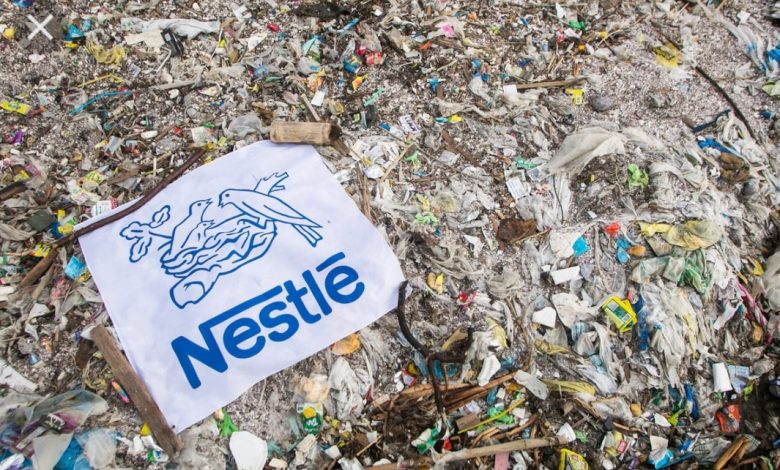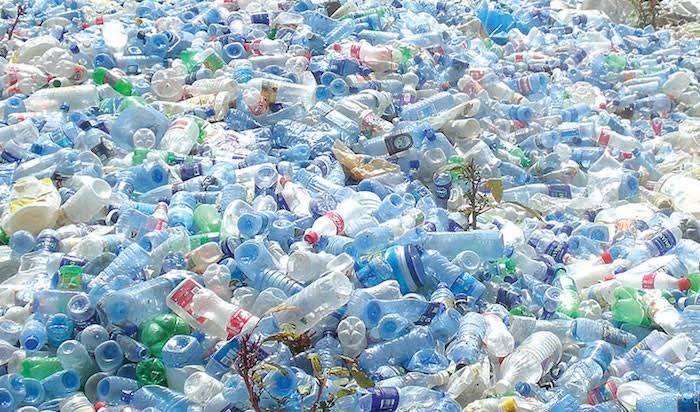The Circular Revolution: Nestlé Nigeria’s Race to Decimate Plastic Pollution and Empower the Informal Economy

By Azeez Disu
The global struggle against plastic pollution represents one of the most pressing environmental challenges of the modern era. Annually, the world’s oceans are inundated by approximately 11 million metric tons of plastic waste, contributing to an estimated 5 trillion pieces already floating in the marine environment. This crisis is not merely an aesthetic concern; the global cost associated with cleanup, and damage to vital sectors like fisheries and tourism, is pegged at a staggering $13 billion annually. Furthermore, the effects permeate all aspects of life, with microplastics now detected in deep-sea sediments, Arctic ice, and even in human biological systems, including blood, lung tissue, and placentas.
For Nigeria, Africa’s most populous nation, this crisis is deeply acute. The country generates over 32 million tonnes of waste annually, with plastic constituting a significant 2.5 million tonnes of that figure, according to a United Nations Industrial Development Organisation (UNIDO) report. Recent data indicates that Nigeria continues to generate an estimated 2.7 million tonnes of plastic waste each year, yet only about 15 to 20% of this vast quantity is properly managed. This overwhelming volume of unmanaged waste contributes significantly to urban flooding in major cities, such as Lagos and Port Harcourt, through blocked drainage systems. Without substantial policy enforcement and infrastructural improvements, plastic waste generation is alarmingly projected to increase by 5 to 10% annually through 2025.
In the face of this environmental and social emergency, multinational companies operating within Nigeria have been compelled to redefine their roles. At the forefront of this commitment to mitigating environmental impact is Nestlé Nigeria, which has embraced the principle of plastic neutrality. Plastic neutrality involves a commitment by companies to recover and recycle an amount of plastic waste equivalent to the quantity they introduce into the market through their operations, thus fostering a circular economy.
Nestlé Nigeria’s ambition is clear and quantifiable: to achieve zero waste to landfills and reach a plastic neutrality target of a minimum of 80% by 2025. This represents a monumental undertaking, especially considering the structural challenges inherent in Nigeria’s waste collection infrastructure.

The Blueprint for Circularity: Design and Data
Nestlé Nigeria’s strategy is built upon twin pillars: aggressive reduction of virgin plastic use and intensive investment in local recycling infrastructure. The company has globally articulated its vision for a waste free future, stating that none of its packaging, including plastics, will end up in landfills, oceans, or as litter. This vision translates into highly specific actions on the ground.
Kayode Adewale, Nestlé’s Packaging Manager, highlights the foundational economic philosophy driving this shift: “We want to reduce going to the market continuously to buy virgin materials. Therefore, we have to leverage on what we have produced into the environment. People now see these collections as a means of generating income. Our collaboration with ALEF has enhanced people’s economic empowerment/income which bring about circular economy”.
This commitment to circularity is evident in Nestlé’s packaging innovations. The company has successfully reduced the amount of plastic used in its 0.6 litre and 1.5 litre bottles by over 15%, thereby making its plastics more eco friendly. Furthermore, Nestlé has already attained a significant goal: the change of its Milo and Nescafe Ready to drink (RTD) straw from plastic to paper, recognising that the ecosystem for paper recycling is more mature than that for plastic.
Mr Adewale also detailed the progress in material content: “We get half from virgin materials and the other from what is generated to have 50% recycled PET. However, our mission is to ensure that one third of our packaging materials are recyclable by the end of 2025. We have reduced our package of our Milo laminate when you juxtapose it with other products. The size may be small but the content is the same with others because we are conscious of the environment”. He stressed the ongoing efforts to ensure minimal environmental harm, stating: “We are able to recycle the laminate to reduce the negative impact on the environment. We are doing a lot at Nestle Nigeria to ensure our activities don’t have any negative impact on humans and environment. We’re always thinking about people”.
The goal of full circularity recently reached a landmark achievement when Nestlé Nigeria introduced new bottles featuring fifty percent recycled polyethylene terephthalate (rPET) for its bottled water, Pure Life. This innovation, which effectively cuts the use of virgin plastics in that packaging line by 50%, was officially launched in December 2023 and signifies a critical step towards achieving 100% plastics neutrality.

The 80% Target: A Data Snapshot
Achieving plastic neutrality is a complex, multi faceted challenge, depending entirely on the maturity of local recycling ecosystems for different plastic types. Dr. Victoria Uwadoka, the Corporate Communications, Public Affairs and Sustainability Lead for Nestlé Nigeria, offered a transparent view of the journey so far.
She confirmed the overarching ambition: “Our plastic neutrality target is to have a minimum of 80% by 2025, and for different types of plastic, we are at different percentages. In Nigeria, we have a good ecosystem for recycling pet bottles then we have a higher percentage for flexibles, a much lower percentage than that, for multilayer plastics more lower than that because these are the ecosystems that are relatively grown. Our challenge with it is, what do you do with it when you collect them? Who will use it after that?”.
Currently, by calculating all plastic types, Nestlé Nigeria has attained the 45% mark toward its minimum 80% goal. Dr Uwadoka elaborated on this crucial metric: “In the case of pet bottles, for example, we have partners who are already transforming and using it for different things, on average calculating all the plastics we are about 45%, with our target being 80% minimum by 2025”.
However, the path to 80% is paved with logistical challenges, including the need to physically remove waste equivalent to production. Dr Uwadoka noted the specific nature of this task: “The challenge we still have is to remove exactly the bottle of ‘Pure Life’, we make sure we remove one bottle from the environment so that we can have zero impact. We are working towards full circularity hence we are partnering ALEF. We are finding a home grown solution, we are passionate about it”.

Empowering the Backbone of Recycling
The success of Nestlé’s neutrality target relies heavily on collaborations that strengthen Nigeria’s informal waste economy. The company’s supply chain encompasses hundreds of waste pickers, collectors, and SME aggregators. The decision to invest heavily in this informal sector is considered critical for achieving both scale and social impact.
Nestlé has established strategic partnerships with organisations like Weclyclers to ensure plastics are properly disposed of, and most significantly, with ALEF Recycling Company. ALEF was instrumental in achieving the milestone of 50% rPET content in Nestlé Pure Life bottles. Mr. Wissam Ramlawi, Managing Director of ALEF Recycling Company, confirmed the intensity of the collaboration required to reach this food grade standard, stating: “This has been a long, rigorous journey for us, working with Nestlé’s technical and quality assurance teams to comply with Nestle’s very demanding standards and procedures. We also had the pleasure of working with regulators and our suppliers to achieve the desired food grade quality standards for rPET”.
Beyond these core recycling partners, Nestlé’s Plastic Advantage Programme further embeds circularity by directly supporting 43 mini aggregators. This support includes training, provision of operational equipment, and financial incentives. This model is invaluable, as it not only expands collection networks across multiple states but also helps to formalise segments of the informal recycling sector, providing predictable income opportunities that support thousands of waste pickers who are the “backbone” of the country’s recycling ecosystem.
This emphasis on the human element is central to the company’s purpose. Dr Uwadoka affirmed: “At Nestle Nigeria, two things are important. One is the people and the other is the product. We are unlocking the power of food hence we take Sorghum to transform to malt and Milo mixed with cocoa; maize into Golden Morn and fortified with iron to enhance the quality of life and nutrition”.
A Collaborative Industry and Policy Landscape
Nestlé Nigeria’s actions occur within a wider framework of corporate and governmental initiatives, notably through its collaboration with the Food and Beverage Recycling Alliance (FBRA), which is instrumental in driving Nigeria’s circular economy efforts.
The Executive Director of FBRA, Agharese Lucia Onaghise, praised the growing industry commitment, noting the influence of Nestlé’s recent achievement: “We have collaborated with various stakeholders across the industry. In December 2023, Nestlé launched their 50% recycled content bottle. Companies like Seven Up, Nigerian Breweries, and Guinness are also in the process of integrating at least 25% recycled content into their production. By 2030, this figure is expected to rise to 50%, driving the circular economy even further”. This industry wide movement involves companies rethinking their package designs, such as Coca Cola changing its Sprite PET bottle from green to clear to facilitate easier recycling.
However, the burden of responsibility cannot rest solely on large multinational corporations. Dr Olufunto Boroffice, Founder and CEO of Chanja Datti, stressed the need for wider participation: “A lot of smaller water producers and other plastic based businesses are not part of the conversation to solve the problem of plastic pollution,” she said. “Brands pledge to recycle, but only a few truly commit. Many local brands must join the EPR scheme, contribute financially, and help mop up plastic waste from the environment”.
The Nigerian government is also signalling increased focus, exemplified by the Federal Ministry of Youth Development’s launch of the Circular Economy Youth Empowerment Initiative for Climate Action (CEYEI). This bold step aims to convert Nigeria’s waste challenges into opportunities for wealth creation and youth empowerment, training young Nigerians to convert waste into valuable, eco friendly products. Yet, experts like Oreva Atanya, Director of the Lagos Business School Sustainability Centre, stress the continued need for government support for those operating within the plastic recycling value chain to better tackle the social environmental menace of pollution and boost job creation.
Global Standards and Future Trajectory
Nestlé’s rigorous approach to plastic neutrality in Nigeria is informed by its global commitment to environmental stewardship. While achieving 80% by 2025 is the Nigerian minimum target, the possibility of full circularity is demonstrated elsewhere. For instance, in Costa Rica, Nestlé became the first company in the world to receive the Plastic Neutral certification by SGS, based on a Life Cycle Analysis, guaranteeing that the company valorises the equivalent of 100% of the plastic packaging it introduces into the market. This project annually diverts tens of thousands of tonnes of municipal waste from landfill, demonstrating the gold standard for full traceability.
The data underscores the scale of the challenge in Nigeria, where plastic pollution is projected to worsen without intervention. Nestlé Nigeria’s commitment to achieving 80% neutrality by 2025 is more than just a corporate goal; it is a vital intervention that injects capital and formalisation into the recycling sector. By tackling the systemic issue of waste collection and ensuring market off take for recycled materials, the company is attempting to build an enduring, profitable ecosystem for plastic recovery. The journey from the current 45% to the ambitious 80% minimum is a race against time, but one that promises profound returns for the environment, for the thousands of waste pickers, and ultimately, for Nigeria’s sustainable future.
The movement towards plastic neutrality, driven by these high profile corporate commitments and supported by innovation, acts much like a societal tidal wave. Initially slow to gather momentum, as it builds capacity, infrastructure, and awareness—the ‘wave’ of change gains unstoppable force, sweeping away old linear models and depositing new, circular wealth in its wake.


